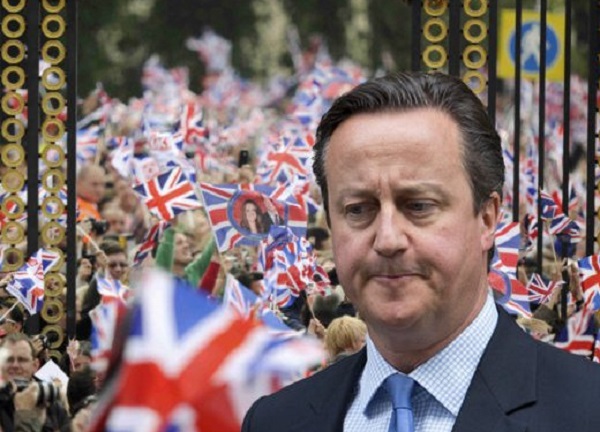Even as British stocks took a plunge and the pound sterling took its deepest dive since 1985, the Canadian head of the Bank of England said the country’s banks are in a far better position to weather the challenges posed by the historic referendum in which a narrow majority of British voters elected to leave the European Union.
“We are well prepared for this,” Mark Carney, the Governor of the Bank of England, calmly announced as he stood before cameras yesterday. “The Bank of England will not hesitate to take additional measures as required.”
“Some market and economic volatility can be expected” says Mark Carney
“…but we are well prepared for this.” https://t.co/uSRvfyQjZ5— BBC Politics (@BBCPolitics) June 24, 2016
Briton voted 52 per cent to 48 per cent to leave the EU which Britain joined back in 1973. Following the vote, the British pound fell more than 20 per cent to around US$1.32, its lowers since 1985, before recovering to around $1.38.
Before taking his post as head of the Bank of England, the Irish-Canadian economist was the Governor of the Bank of Canada. Carney is widely credited for playing a major role in helping Canada avoid the worst impacts of the 2008 global financial crisis.
He said the Treasury and the Bank of England had engaged in “extensive contingency planning” well before the vote and the central bank is prepared to pump in additional cash to support the pound.
“The Bank of England has stress tested them against scenarios more severe than the country currently faces,” Carney assured. “As a result of these actions, UK banks have raised over £130bn of capital, and now have more than £600bn of high-quality liquid assets. Moreover, as a backstop, and to support the functioning of markets, the Bank of England stands ready to provide more than £250bn of additional funds through its normal facilities.”
Four ways Brexit impacts Canadians
A significant chunk of Canada’s economic growth this year could also be impacted by Brexit, according to local economic analysts.
The TSX experienced a sharp drop on the opening Friday. Oil prices fell slide by three per cent, to around $47.60 per barrel.
Brexit can impact Canada in four ways:
Exports – Canada exported nearly $16 billion worth of products to the U.K. in 2015. That account for about three per cent of our total exports, according to Statistics Canada. This makes the U.K. Canada’s third largest trading partner behind the U.S. and China.
With Britain’s departure from the E.U., Canada could lose out on expected benefits from the Comprehensive Economic and Trade Agreement (CETA) because the agreement may have to be renegotiated. The CETA is Canada’s trade agreement with the E.U. which is still under review.
Canadian housing market – Brexit could cause Canada’s hot housing market to keep on burning. The global market uncertainty could also keep interest rates low, keep mortgage rates low, “fanning the flames in the domestic housing market,” BMO Nesbitt Burns chief economist Douglas Porter, was quoted as saying in a Toronto Star report.
Strong U.S. dollar – Canadian travelling to the United States could find their vacation costing more. Disruption brought about by Brexit has caused the pound to weaken against the U.S. dollar.
Canadian investors lose out – Canadians invested nearly $69 billion in the U.K. in 2014, according to StatsCan and many Canadians have their retirement money invested in Britain through retirement funds like the CPP. At least in the short-term, Brexit has caused financial instability in the U.K. The International Monetary Fund was reported to have said that the U.K. is in danger of slipping into a recession similar to the one experience in 2008.

